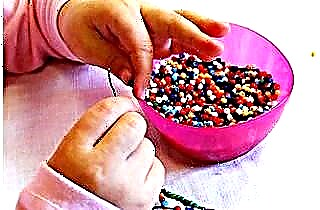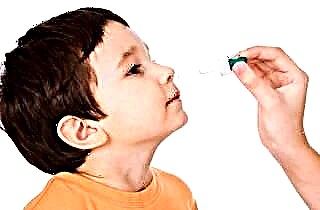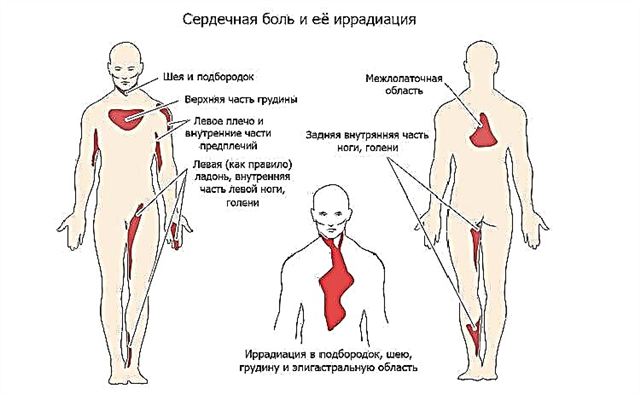The structure of the nasal cavity is initially determined by the tasks performed. It is about humidifying, heating and purifying the air (from pathogenic bacteria, dust, smoke) that enters the body. In order for all these processes to be carried out as quickly as possible, many small blood vessels are located in the mucous membrane. They are extremely close to its surface and are extremely vulnerable. Therefore, it is not surprising that nosebleeds are the most common.
As a rule, it is children who are prone to nosebleeds. This is easily explained by anatomical features. In childhood, the nasal mucosa continues to form and is extremely thin. Therefore, all parents should know how to stop a child's nosebleeds safely and gently.
Symptoms
First aid for nosebleeds in children must necessarily take into account the individual characteristics of each child. In one case, blood can go immediately, in another it will be preceded by certain symptoms:
 headache;
headache;- dizziness;
- tinnitus;
- itching, tickling in the nasal cavity, and so on.
External bleeding is most common. If such a process goes on inside, then the blood will not appear on the face, but will drain into the oropharynx (it is there that it is found during the diagnostic pharyngoscopy). There are several levels of blood loss. The first level is characterized by the following symptoms:
- dizziness;
- pallor of the skin;
- thirst;
- general weakness;
- increased heart rate.
As for the second, intermediate level, here the key symptom of blood loss should be especially noted - severe dizziness. If the child is bleeding frequently, dizziness is often accompanied by low blood pressure and shortness of breath. In some cases, the already existing signs are complemented by blue skin and tachycardia (frequent contraction of the heart).
Emergency treatment for nosebleeds is required for heavy discharge. The danger lies in the possibility of the onset of hemorrhagic shock, when the child is in a lethargic state and quite often completely loses consciousness. In addition to low blood pressure, a threadlike and poorly palpable pulse is diagnosed.
Key reasons
If your baby is bleeding from the nose, you must first determine the root cause of the bleeding. As a rule, it is called:
- Some bacterial as well as viral diseases (flu, measles, scarlet fever, and so on). They contribute to inflammation in the nasal cavity. In addition, such ailments cause loosening of the mucous membrane, due to which small blood vessels and capillaries are destroyed. As a result
 periodic bleeding is observed, which in this case is usually called symptomatic.
periodic bleeding is observed, which in this case is usually called symptomatic. - Nasal injuries. They can be provoked both by the child himself (nose-picking), and by external factors, for example, a strong blow. It should be said about foreign objects in the nasal cavity. A baby may have nosebleeds if a foreign body enters the nostril and attempts to remove it.
- Frequent use of drugs for vasoconstriction ("Nazola", "Nazivina", "Nozakara" and others). Their use leads to mucosal atrophy. It becomes thinner, becomes even more tender, which causes bleeding. Therefore, giving such medicines to a child should only be done as a last resort.
- Excessive tamponade. Of course, tampons should be used for severe bleeding. But do not forget that this entails the blockage of blood flow and mucosal atrophy. Therefore, tampons should be used sparingly.
- Hereditary or acquired ailments. For example, hemophilia (a hereditary disease), lupus, or thrombocytopenia (an acquired disorder) impairs blood clotting. Even with mild bleeding, the walls of the mucosa in such patients heal for a long time. Relapses are common.
- Anatomical features of the nose. So, a slight curvature of the nasal septum can provoke bleeding.
- Overvoltage. A sharp jump in pressure often leads to the destruction of already delicate children's vessels. This is especially noticeable with severe coughing fits and sneezing.
- Arterial hypertension. We are talking about an increase in blood pressure and subsequent vascular damage.
- Internal bleeding when the stomach, esophagus, or other organs are damaged.
How to stop nosebleeds?
If a child is bleeding from the nose, what should be done in this case? First of all, parents should calm down. There is no need to escalate the situation and frighten the baby even more, only exacerbating the situation. Remember that stress often leads to increased bleeding.
 Call your doctor right away if you bleed profusely from the nose. The small patient must be placed on a flat surface. If this is not possible, throw your child's head back. But throwing back the head is allowed only with tamponation.... It is not recommended to do this at home without tampons, as blood can enter the mouth and esophagus. Additionally, place an ice pack on the bridge of the nose (first wrap it in a napkin) or a towel soaked in cold water.
Call your doctor right away if you bleed profusely from the nose. The small patient must be placed on a flat surface. If this is not possible, throw your child's head back. But throwing back the head is allowed only with tamponation.... It is not recommended to do this at home without tampons, as blood can enter the mouth and esophagus. Additionally, place an ice pack on the bridge of the nose (first wrap it in a napkin) or a towel soaked in cold water.
The professional help of a doctor is different. Specific actions depend on the strength of the bleeding, its main cause and the individual characteristics of the child. But, as a rule, the following methods are used to stop the blood:
- Medical coagulation (cauterization) of a blood vessel. This procedure is carried out by means of electric current, ultrasound, laser devices or chemicals (silver nitrate, and so on).
- A tamponade that effectively stops blood. In the nostrils are introduced tampons, previously moistened in chloroacetic acid or "Vagotil".
- Introduction of a hemostatic sponge into the nasal cavity. It is impregnated with special substances that improve blood clotting.
- Plasma transfusion. It is used in very severe cases, when standard methods do not allow to calm the blood.
- Intravenous aminocaproic acid injections. This remedy is especially effective with significant blood loss.
Preventive actions
Now you know how to stop nosebleeds at home. But, as you know, any disease is always easier to prevent than to cure later. Therefore, we advise you to pay sufficient attention to prevention. Here are some simple tips to help prevent bleeding:
 Monitor the humidity level in the room where the child lives. Give your baby plenty of fluids. This will avoid excessive drying out of the mucous membrane and maintain the integrity of the nasal blood vessels.
Monitor the humidity level in the room where the child lives. Give your baby plenty of fluids. This will avoid excessive drying out of the mucous membrane and maintain the integrity of the nasal blood vessels.- Avoid too frequent use of antihistamines, as well as vasoconstrictor drugs. They dry the mucous membrane, disrupt its full work and lead to vascular degradation.
- From time to time, lubricate the nasal cavity with special moisturizers (vegetable oil, isotonic sodium chloride solution, etc.).
Make sure that the child picks the nose less, protect the nose from any mechanical damage.
If the nosebleed only disturbed your baby once, don't worry. But with regular bleeding, you should consult a doctor and undergo an examination.Only a specialist will be able to identify the key cause of blood loss and prescribe the optimal rehabilitation course.

 headache;
headache; periodic bleeding is observed, which in this case is usually called symptomatic.
periodic bleeding is observed, which in this case is usually called symptomatic. Monitor the humidity level in the room where the child lives. Give your baby plenty of fluids. This will avoid excessive drying out of the mucous membrane and maintain the integrity of the nasal blood vessels.
Monitor the humidity level in the room where the child lives. Give your baby plenty of fluids. This will avoid excessive drying out of the mucous membrane and maintain the integrity of the nasal blood vessels.

